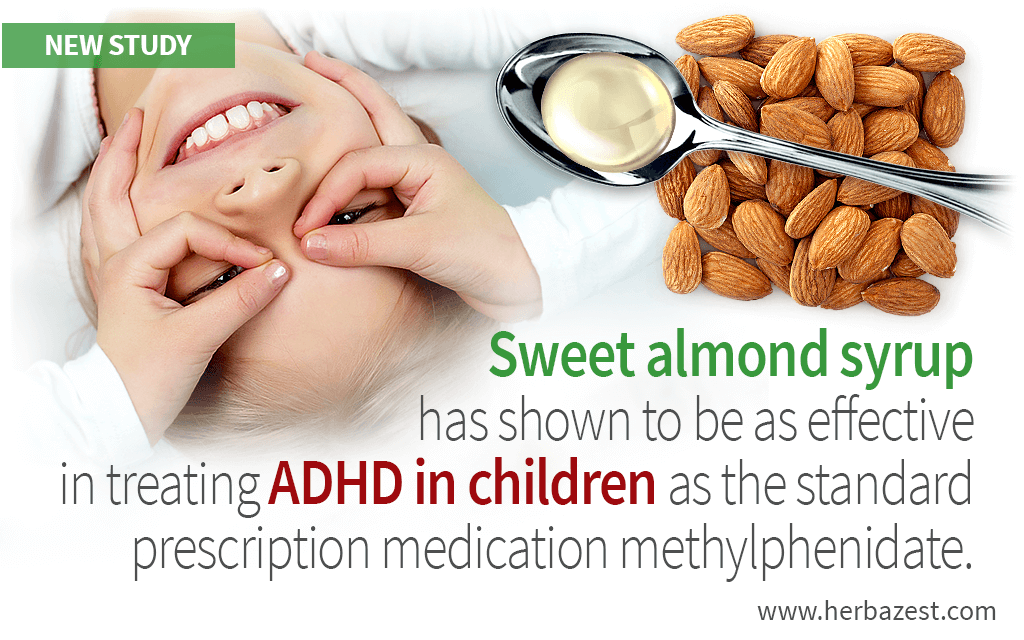The standard treatment with methylphenidate (MPH) has proven effective for treating attention deficit hyperactivity disorder (ADHD) in children; however, it may cause significant side effects in some children, leading many parents to search for alternative options.
Researching for functional foods that may benefit brain function and be used for ADHD treatment, researchers took a closer look at almonds, particularly their most common, sweet variety. In fact, the nut has already showed abilities to improve memory, concentration, and mental alertness.1
The aim of this trial was to investigate the effects of sweet almond on the treatment of ADHD in children in comparison to MPH.
The Study
It was a randomized, triple-blind clinical trial, which took place in Ziaeian Hospital, Tehran, Iran. The results were published in the Complementary Therapies in Clinical Practice journal.
Researchers recruited 50 children between the ages of 6 and 14, diagnosed with mild to moderate ADHD. Children were randomly assigned to two groups, each with a different regimen for eight weeks as follows:
The control group received MPH tablets twice a day and 5 mL daily of a therapeutically ineffective placebo syrup (taken three times a day) for the first week.
The intervention group received therapeutically ineffective placebo tablets twice a day and 5 mL daily of sweet almond syrup (taken three times a day).
During the first week, the tablet dosage was 5 mg twice daily, which was increased to 10 mg twice a day then onward. Children above 30 kg received 10 mg tablets three times a day, starting from the third week.
Various clinical assessments were conducted before, during, and after the start of the study, including attention and behavioral abnormalities using the ADHD Rating Scale.
The Results
Researchers noted significant improvements in hyperactivity and inattention categories of the ADHD Rating Scale in both groups, the control and intervention group.
No serious or lasting adverse reactions were reported during the trial. There were more mild side effects observed in the control group, such as appetite loss and sleep problems. The intervention group reported increased appetite.
What Does this Mean?
The results of this clinical trial indicate that supplementation with sweet almond syrup is as effective in reducing ADHD symptoms in children as standard pharmacological treatment with methylphenidate.
The fact that sweet almond syrup is less addictive and causes less side effects further validates its use as a safe and natural treatment for ADHD on its own or in combination with medications.
Researchers state that the mechanism behind these actions is not yet understood, and more studies are needed to fully understand the use of sweet almond syrup for ADHD; however, it is believed that these effects may be due to antioxidant and anti-inflammatory compounds as well as essential fatty acids in sweet almonds.
Other herbs with neuroprotective actions include turmeric, ginkgo biloba, and ginseng.
Sources
- Complementary Therapies in Clinical Practice, Effect of sweet almond syrup versus methylphenidate in children with ADHD: A randomized, triple-blind clinical trial. 2019
Footnotes:
- Brain Research Bulletin. (2016). Repeated administration of almonds increases brain acetylcholine levels and enhances memory function in healthy rats while attenuates memory deficits in animal model of amnesia. Retrieved November 19, 2020 from https://pubmed.ncbi.nlm.nih.gov/26548495/





